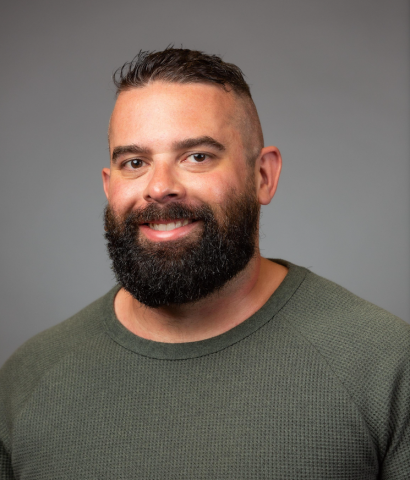Welcome to Associate Professor Samuel Fury Childs Daly

The Department is delighted to welcome Samuel Fury Childs Daly to its ranks as Associate Professor of African History.
Professor Daly is a prolific scholar and author on themes in modern African society and politics. His book A History of the Republic of Biafra: Law, Crime, and the Nigerian Civil War, which was published by Cambridge University Press in 2020, is a pioneering analysis of law, war, and society in a context of catastrophic social breakdown. Beautifully written and devastatingly evocative, it tells the story of the ill-fated Biafran Republic that broke away from Nigeria in 1967 only to collapse amid defeat and famine in the war that ensued. Although the putative nation was never able to establish anything as permanent as a constitution, Professor Daly argues, the aspiration to lawfulness was a central part of its plan to realize the potential of decolonization. Judges and courts continued to operate even as Biafra collapsed, seeking to uphold order amidst an environment of chaos, violence, and ultimately despair. But at the same time, as conditions became more and more desperate, so Biafra’s people found themselves having to act in ways that were at best quasi-legal in order to survive. The boundary between the legal and the illegal became increasingly porous, as did that between police and perpetrators. The legal system itself began to run short of paper with which to manage its processes, while the fraudulent production and circulation of documents became an everyday activity. And in the end this experience shaped events long after the Biafran war itself. At the heart of Professor Daly’s book is a provocative thesis about what became a pervasive element in understandings of Nigerian culture in the aftermath: an alleged national propensity for criminality and fraud. He shows that tactics originally developed in order to survive conflict and anarchy generated lasting habits and skills. They laid the foundations for a panoply of illicit practices in the uneasy peace that followed – including eventually the Internet scams we have all heard about. Such national “indiscipline” would offer all too tempting a rationale for military intervention in the nation’s politics. Professor Daly’s account of the everyday experience of law and order during the Biafran years therefore undergirds a new interpretation of Nigerian social and political history itself, all the way from the imperial period to the present.
Beyond A History of the Republic of Biafra, Daly has published widely, and he has a number of projects in the pipeline. Fast approaching is a second book, Soldier’s Paradise: Militarism in Africa After Empire. Here he ranges beyond Nigeria to examine the general phenomenon of military rule in the region. Militarism, Professor Daly notes, has often been treated as rather empty – as a mere vehicle for ambitious and corrupt army officers seeking to enrich and empower themselves. Professor Daly points out that this is too hasty and even complacent. Militarism in the region has often shown a distinct ideological character, grounded in the shared experiences of military men across different countries. As in Nigeria, military leaders have seen civilian rule as chaotic and ill-disciplined; they have insisted that genuine “freedom” could arise through a process of self- and social disciplining for which the army would be the model and the agent. That is why they have been able to tout their regimes as “revolutionary” – and as offering the prospect of finally realizing the long-standing promise of decolonization. Once again, Professor Daly is taking on morally complex questions here, and he is revealing their paradoxical, sometimes disquieting, historical complexity. A third book on military desertion promises to be no less revelatory.
The themes of Professor Daly’s work – themes of law, military culture, ideology, and social order – are of course not unique to Africa. It will be fascinating to see what conversations his scholarship will inspire in the coming years across the History community at the University of Chicago. We look forward eagerly to those conversations as we welcome him to our campus.
 THE UNIVERSITY OF CHICAGO
THE UNIVERSITY OF CHICAGO

